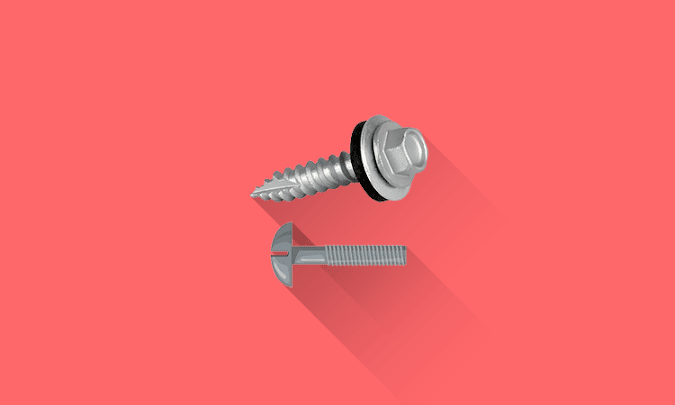Difference Between Self-Tapping Screws and Non-Self-Tapping Screws
Screws are the most commonly used fasteners due to their versatility and strength. However, not all screws are equal. One crucial distinction is whether a screw is self-tapping or non-self-tapping. Self-tapping screws can cut their own thread path during its installation, while non-self-tapping screws require a pre-drilled hole or tap before insertion. Both types of screws have advantages and limitations, which we will explore in the following comparison table.
🔗Difference Between Self-Tapping Screws and Self-Drilling Screws
Comparison Table: Self-Tapping Screws vs Non-Self-Tapping Screws
|
Self-Tapping Screws
|
Non-Self-Tapping Screws |
|
Cut
their own thread path during the insertion of the screw. Not need taping
before insertion.
|
Requires
a pre-drilled pilot hole and thread pathways before inserting the screw.
|
|
Simple and rapid screw fastening
|
Require
more steps for operation, including drilling a pilot hole and tapping the
hole
|
|
Need
more amount of torque to drive the screw into the material to surpass
friction
|
The
torque required to surpass friction is minimum when compared to a self-tapping
screw.
|
|
They are difficult to tighten, a portion
of torque applied is used to overcome friction during thread cut.
|
A
greater portion of applied torque will be transformed into effective tensile
force in the screw.
|
|
Since they require high axial load, there
is a risk of fracture displacement during bone surgery. They are prone to
stripping or cracking the boss.
|
Because
it requires less axial load, there is less risk of fracture displacement
|
|
Self-tapping screws are not meant for
repeated assembling dissembling.
|
Since
they are inserted into pre-drilled thread pathways, they can be assembling
dissembling repeatedly without the fear of accidental damage
|
|
They are widely used in bone surgery,
dental implantation, orthopaedic bone fixation, carpentry, attaching removable
parts, etc.
|
General-purpose
fasteners for assembling materials with a pre-drilled hole
|
|
Advantages: Eliminates the need for
pre-tapping, reduces operative time, creates a tight fit, requires fewer
steps for operation, etc.
|
Advantages:
Suitable for precise application, high torque, easier to tighten, no risk of
thread deformation, etc.
|


